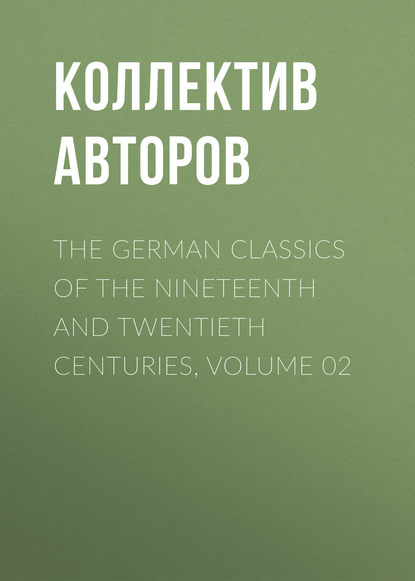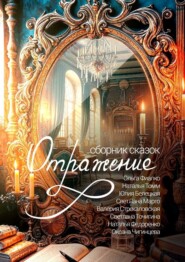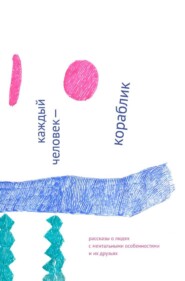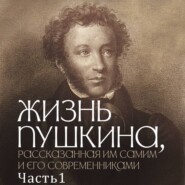По всем вопросам обращайтесь на: info@litportal.ru
(©) 2003-2025.
✖
The German Classics of the Nineteenth and Twentieth Centuries, Volume 02
Настройки чтения
Размер шрифта
Высота строк
Поля
Letters are among the most important monuments which the individual leaves behind him. Imaginative persons often picture to themselves, even in solitary musings, the presence of a distant friend, to whom they impart their most private opinions; and in the same manner a letter is a kind of soliloquy. For often the friend to whom, we write is rather the occasion than the subject of the letter. Whatever rejoices or pains, oppresses or occupies us, is poured forth from the heart. As lasting evidences of an existence or a condition, such papers are the more important for posterity, the more the writer lives in the moment and the less he is concerned with the future. Winckelmann's letters sometimes have this desirable character.
Although this excellent man, who educated himself in solitude, was reticent in society, serious and discreet in his personal life and conduct toward others, he was free and unconstrained in his letters, in which he often reveals himself, without hesitation, just as he felt. We see him worried, troubled, confused, doubting and dilatory, but also cheerful, alert, bold, daring, and unrestrained to the degree of cynicism; altogether, however, as a man of tempered character and confident in himself; who, although the outer conditions offered to his imagination so much to choose from, usually chose the best way, except when he took the last impatient step which cost him his life.
His letters, having the general characteristics of rectitude and directness, differ according to the persons to whom they are addressed, which is always the case when a clever correspondent imagines those present with whom he is speaking at a distance, and therefore no more neglects what is proper and suitable than he would in their presence.
Thus the letters addressed to Stosch (to mention only a few of the larger groups of Winckelmann's letters) seem to us fine testimonials of honest cooperation with a friend for a definite purpose; a proof of his great endurance in a difficult task, thoughtlessly undertaken without proper preparation, but courageously and happily concluded; they sparkle with the liveliest literary, political, and society news, and form a charming picture of life, which would have been more interesting if they could have been printed entire and unmutilated. Charming also is his frankness, even in passionate disapproval of a friend for whom the writer was never tired of testifying as much respect as love, as much gratitude as attachment.
The consciousness of his own superiority and dignity, combined with a genuine appreciation of others, the expression of friendship, cordiality, playfulness and pleasantry, which characterize the letters to his Swiss friends, make this collection extremely interesting and lovable as well as exceedingly instructive, although Winckelmann's letters cannot on the whole be termed instructive.
The first letters to Count Bünau, in the valuable Dassdorf collection, reveal an oppressed, self-absorbed spirit, which hardly ventures to look up to such an exalted patron. That remarkable letter in which Winckelmann announces his change of religion is a real galimatias, an unfortunate and confused document.
The first half of our own collection serves to make this period comprehensible, yea, immediately intelligible. They were written partly at Nöthenitz, partly at Dresden, and are directed to an intimate and trusted friend and comrade. The writer stands revealed in all his distress, with his pressing, irresistible desires, but on the road to a new and distant happiness, earnestly sought.
The other half of our letters are written from Italy. They preserve their direct, unrestrained character; but above them hovers the joyfulness of the southern sky, and they are inspired with an exuberant delight in the goal which he has attained. Besides this, they give, compared with other contemporary letters that are already known, a more complete view of his position.
The pleasure of appreciating and passing judgment upon the importance of this collection, which is perhaps greater from the psychological than from the literary point of view, we leave to receptive hearts and judicious minds. We shall add only a few words about the man to whom they were written, in accordance with our available information.
Hieronymus Dieterich Berendis was born at Seehausen in the Altmark in the year 1720, studied law in the University of Halle, and was for some years after his student days auditor of the Royal Prussian Regiment of Hussars, usually called the Black Hussars from their uniform, but at the time named after their Commander von Ruesch. After leaving that rude life, he continued his studies in Berlin. During a sojourn at Seehausen he made the acquaintance of Winckelmann, whose intimate friend he became, and through whose recommendation he was afterward engaged as tutor of the youngest Count Bünau. He conducted his pupil to Brunswick where the latter studied at the Karolinum. When the Count afterward entered the French service, his father, who was at that time minister of state at Weimar, conducted Berendis into the service of the Duke, in which he first became military counsellor, entering afterward the service of the Dowager Duchess as Financial Councillor and Keeper of the Privy Purse. He died on the 26th of October, 1783, at Weimar.
DESCRIPTION OF WINCKELMANN
The most deserving citizen, no matter how great his service may have been to his country and his city in a wider or narrower field, receives but one funeral. Others, however, have so distinguished themselves by worthy benefactions that they are honored by a public celebration of the anniversary of their death, on which occasion the lasting influence of their beneficence is praised. In the same sense we have every cause to offer from time to time a well meaning tribute to the memory of the men who have bestowed inexhaustible mental benefactions upon us.
From this point of view the slight tribute which friends of similar opinions now offer should be regarded as a testimonial of their appreciation, not as an account of his services. The feast at which it is offered will be participated in by all appreciative minds on the occasion of the recently discovered letters of Winckelmann, now for the first time published.
SKETCHES FOR AN ESSAY ON WINCKELMANN PREFACE
The following essays, written by three friends, whose opinions on art in general, as well as on the services of Winckelmann, coincide, were intended as a basis for a more extended essay on this remarkable man, and to furnish the materials for a work which should have at once the merit of diversity and of unity.
But as in life many an undertaking encounters all kinds of obstacles, which hardly allow the requisite material to be collected, to say nothing of giving it the desired form, so here only half of the whole as planned appears.
In the present instance, however, the half may be prized more than the whole, since, by the study of three individual opinions on the same subject, the reader may to a greater extent be stimulated and incited to form an individual conception of the significant life and character of Winckelmann, which can now be easily accomplished by the aid of the earlier and more recently published materials. We therefore hope to merit gratitude if, instead of waiting for a later opportunity and promising a future achievement, we freely offer, in Winckelmann's own refreshing manner, only that which is already prepared, even though it be not complete, in order that it may after its own fashion exert a timely influence in the great world of life and culture.
INTRODUCTION
The memory of noteworthy men and the presence of important works of art, awaken from time to time a spirit of contemplation. Both stand before us as legacies of each succeeding generation, the former by reason of their deeds and fame, the latter actually preserved as indefinable realities. Every judicious observer knows full well that only the contemplation of these men and monuments in their entirety would be of real value, and yet we are always attempting to make them more comprehensible by our reflection and our words.
One is especially impelled to this when something new relating to such subjects is discovered and made known. We trust therefore that the public will find our renewed observations on Winckelmann, his character and his achievements a timely contribution, since the letters which are now published throw a more vivid light upon his mode of thought and the conditions under which he labored.
ENTER WINCKELMANN
Even to ordinary mortals Nature has not denied a very precious endowment—I refer to that lively impulse felt from earliest childhood, to take hold of the external world, to learn to know it, to enter into relation with it, and to form with it a complete whole. Certain chosen spirits, on the other hand, often have the peculiarity of feeling a kind of aversion to actual life, withdraw into themselves, and create in themselves a world of their own, in this wise achieving the highest inner development.
But when, in especially gifted men, appears the need common to all of us of seeking in the external world a corresponding realization for all the gifts with which Nature has endowed them, thereby raising their inner being to a self-relying whole, we may be assured of the development of a character in which both the present and the future world will rejoice.
Winckelmann was a man of this kind. Nature had placed in him whatever makes and adorns the true man. Furthermore, he devoted his entire life to the search for that which is harmonious and worthy in man and in art, which is primarily concerned with man.
An obscure childhood, insufficient instruction in his youth, disjointed and scattered studies in early manhood, the pressure of a school position, and all the worry and annoyance that are experienced in such a career—all these he had suffered as many others have. He had reached the age of thirty without having enjoyed a single favor at the hands of fate; yet in him were planted the germs of an enviable happiness, very possible to realize.
Even in these unhappy days we find the trace of that impulse to know for himself with his own eyes the conditions of the world, gloomy and disjointed traces it is true, but expressed with sufficient decision. A few attempts to see strange lands, undertaken without sufficient reflection, were unsuccessful. He dreamed of a journey to Egypt; he set out by way of France, but unforeseen obstacles turned him back. More wisely guided by his genius, he at last seized upon the idea of forcing his way to Rome. He felt how very profitable a sojourn in the Eternal City would be for him. This was no whim, no mere thought; it was a decided plan, which he undertook to realize with cleverness and decision.
THE ANTIQUE
Man can accomplish much by the opportune use of individual powers, he can even accomplish extraordinary things by the combination of several powers; but the unique, the startling, he can only achieve when all capabilities are evenly united in him. This last was the happy lot of the ancients, especially of the Greeks in their best period; to the other two alternatives we moderns are unfortunately limited by fate.
When the healthy nature of man acts as a unit, when he realizes his place in the world as part of a great and worthy whole, when a harmonious well-being accords him a pure and free happiness—then the universe, if it had the power of self-realization, its end attained, would rejoice and admire this culmination of its own genesis and existence. For to what purpose is the array of suns, planets and moons, of stars and milky ways, of comets and nebulae, of worlds existing and arising, if it be not that a happy man may unconsciously rejoice in his own existence?
While, in almost every act of contemplation, the modern thinker, as we have just done, projects himself into the infinite, to return only in the end—if he is happy enough in succeeding therein—to a limited proposition, the ancients, without following a long, round-about path, found their exclusive happiness within the lovely confines of this world. Here they were placed, to this end they had been called, here their activity found its field, their passion its object and nourishment.
Why are their poets and historians the wonder of the judicious, the despair of rivals, unless it be because the actors introduced by them were so deeply concerned in their own selves, in the narrow circle of the fatherland, within the circumscribed path of their own life as well as that of their fellow citizens, and because with all their mind, inclination, and power, they worked in and for the present? Under such conditions it could not be difficult for a writer of their opinion to immortalize such a present. What was actually occurring was for them the only thing of value, just as for us only what is thought or felt seems of greatest worth.
In a certain sense the poet lived in his imagination, just as the historian lived in the political, and the investigator in the natural world. All held fast to the nearest, the true, the actual, and even the pictures of their fantasy have bone and marrow. Man, and whatever was human, was considered of the highest value, and all his inner and external relations to the world were represented with the same great intelligence with which they were observed. Feeling and observation had not been separated; that almost incurable breach in the healthy power of man had not yet occurred.
Not only in enjoying happiness, but in enduring unhappiness also, these natures were remarkably gifted. For as a healthy tissue resists illness and is speedily restored after every attack, so the wholesome mind of such natures quickly and easily recovers from internal and external misfortune. Such an antique nature, in so far as one can make this statement of any of our contemporaries, was reincarnated in Winckelmann. At the very beginning it endured its mighty probation, and was not tamed by thirty years of humility, discomfort, and sorrow; it could neither be diverted from its path, nor blunted by adversity. As soon as he attained a worthy freedom, he appears well rounded and complete, quite in the antique sense. He was to live a life of action, enjoyment and self denial, joy and suffering, possession and loss, exaltation and debasement—yet in such a strange medley he was always satisfied with the beautiful world in which such a variable fate befalls us.
Just as in life he possessed a really antique spirit, so in his studies he was faithful to the same ideal. In the treatment of science in general the ancients were in a rather unfortunate position, since for the comprehension of the varied objects of nature a division of powers and capabilities, a disintegration of unity (so to speak) is almost unavoidable. In a like case the modern scholar encounters an even greater danger, because in the detailed investigation of manifold subjects, he runs the risk of scattering his energies and of losing himself in disconnected knowledge, without supplementing the incomplete, as the ancients succeeded in doing, by the completeness of his own personality.
However much Winckelmann wandered about in the fields of possible and profitable knowledge, guided partly by pleasure and inclination, partly by necessity, he always came back sooner or later to antiquity, especially to Greek antiquity, with which he felt himself most closely related, and with which he was destined so happily to be united in his best days.
PAGANISM
The description of the ancient point of view, concerned only with this world and its assets, leads us directly to the observation that such advantages are conceivable only in a pagan mind. That confidence in oneself, that activity in the present, the pure worship of the gods as ancestors and the admiration of them quasi as artistic creations only, resignation to an all-powerful fate, the yearning for future fame, itself dependent upon activities in this world—all these belonging necessarily together, constitute such an inseparable whole that they form a condition of human existence planned by Nature herself. In the highest moment of happiness, as well as in the deepest of sacrifice, even of destruction, we are always conscious of an indestructible well-being.
This pagan point of view pervades Winckelmann's deeds and writings, and is expressed especially in his early letters, where he is still wearing himself out in the conflict with more modern religious opinions. This mode of thought, this remoteness from the Christian point of view, indeed his repugnance of it, must be remembered in judging his so-called change of religion. The churches into which the Christian religion is divided were a matter of complete indifference to him, because in his inmost nature he never belonged to any of them.
FRIENDSHIP
Since the ancients, as we boast, were really entire men, they must, as they found all happiness in themselves and the world, have learned to know the relations of human beings in the widest sense; they could not therefore be lacking in that delight which arises from the attachment of similar natures.
Here also a remarkable difference between ancient and modern times is revealed. The relation to woman, which with us has become so tender and spiritual, hardly rose above the limits of the lowest satisfaction. The relation of parents to children seems to have been of a somewhat more tender character. The friendship of persons of the male sex for one another, with them took the place of all other sentiments; although they pictured the maidens Chloris and Thyia as inseparable friends, even in Hades.
The passionate fulfilment of loving duties, the joy of inseparability, the devotion of one for the other, their avowed allegiance during life, and the duty of sharing death itself, if necessary, fill us with astonishment. One even feels ashamed of one's own generation when poets, historians, philosophers and orators overwhelm one with amazing stories, events, sentiments and opinions, all of the same tenor and purport.
For a friendship of this character, Winckelmann felt himself born—not only capable of it, but requiring it to the highest degree. He realized himself only in the relation of friendship; he recognized himself only in that image of the whole which requires a third for its completion.
Even at an early period he applied this ideal to a probably unworthy object; to whom he consecrated himself, for whom he vowed himself to live and to suffer; for whom he found even in his poverty the means of being rich, of giving and of sacrificing; indeed he would not have hesitated to surrender his existence, his very life. It is in this relation that Winckelmann, even in the midst of poverty and need, feels rich, generous and happy, because he is able to do something for him whom he loves above everything else, and in whom he has, as the highest sacrifice, to excuse even ingratitude.
However the times and circumstances might alter, Winckelmann reshaped every object of worth with which he came in contact, to fit this ideal of friendship. Although many of these attachments easily and quickly vanish, the fine sentiment underlying them won for him the heart of many an excellent man, and brought him the happiness of living in the most beautiful relation with the best men of his age and environment.
BEAUTY
Although such a deep need of friendship really creates and idealizes the object of its affection, the lover of antiquity would, through it alone, achieve only a one-sided moral excellence. The external world would offer him little, if along with it a related, similar need and a satisfying object of this need did not fortunately appear—we refer to the demand for the sensuously beautiful, as revealed in a tangible object. For the supreme product of an ever evolving nature is the beautiful man. It is true that Nature can but seldom produce him, because the ideal is opposed by many existing conditions, and even her almighty power cannot tarry long with the perfect, and perpetuate the beauty it has produced; for, to be exact, we may say it is only for a moment that the beautiful man remains beautiful.
Against this mutability art now enters the lists. For, by being placed at the summit of nature, man views himself as a complete nature, which must now produce another consummation. He attains this end by striving for virtue and perfection, by appealing to selection, arrangement, harmony and significance, through which he at length rises to the production of a work of art, which achieves a brilliant place among his other works and actions. Once achieved and standing in its ideal reality before the world, it produces a lasting and supreme effect. For in its spiritual development from all of man's powers, it adopts all that is noble and lovable; and by spiritualizing the human form and raising man above himself, it closes the circle of his life and activity, and deifies him in the present, in which both past and future are included. By such emotions were those overwhelmed who saw the Olympian Jupiter, as we gather from the descriptions and testimony of the ancients. God had become man in order to raise man to God. One beheld supreme dignity and was inspired by supreme beauty. In this sense we can only acknowledge that the ancients were right when they said, with profoundest conviction, that it was a misfortune to die without having seen this great work.
For the appreciation of this beauty Winckelmann was by nature fitted. He first learned of it in the writings of the ancients, but encountered it personified in the works of art, in which we all first learn to know it, that we may recognize and treasure it in nature's living creations.
When, however, the requirements of friendship and of beauty both find inspiration in the same object, the happiness and gratitude of man seem to pass all bounds. All that he possesses he would gladly give as a feeble testimony of his attachment and his devotion.

















